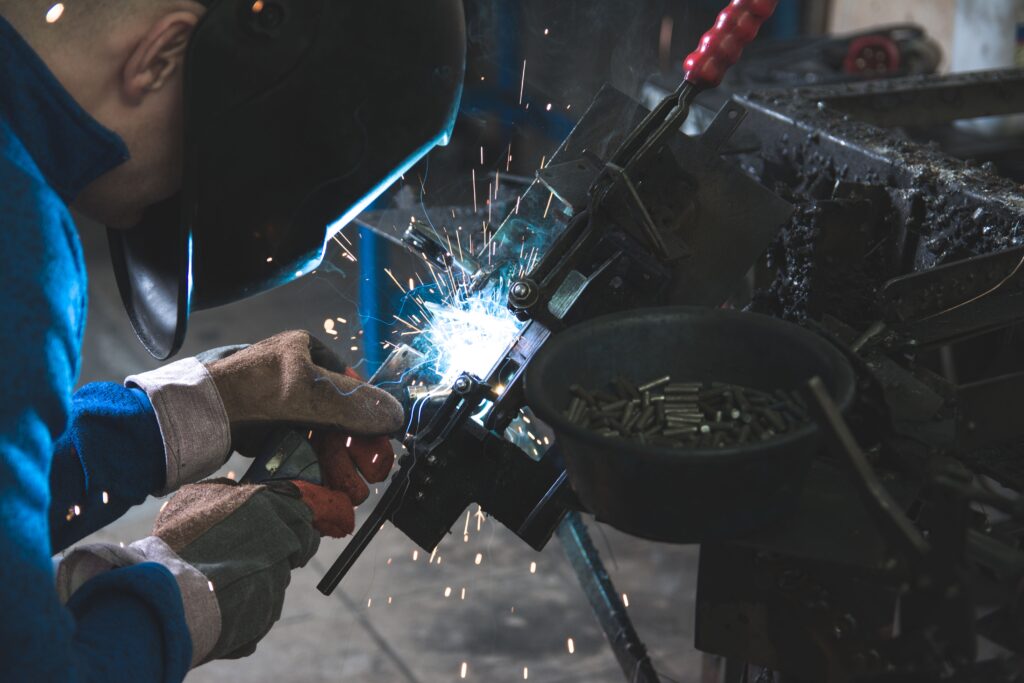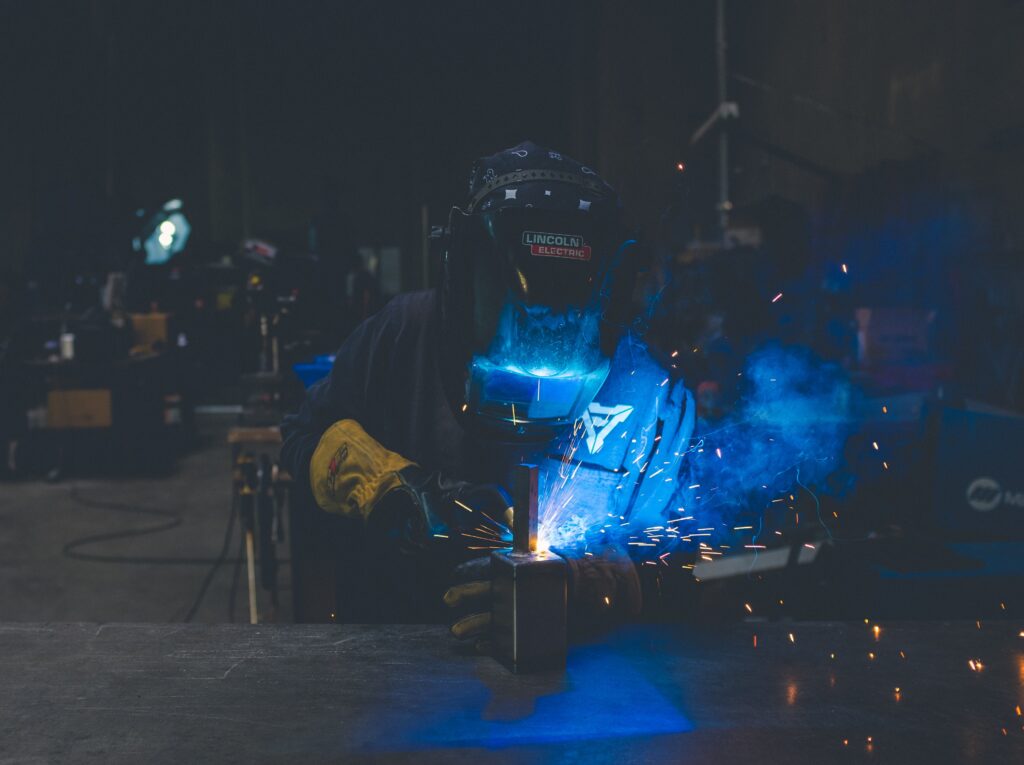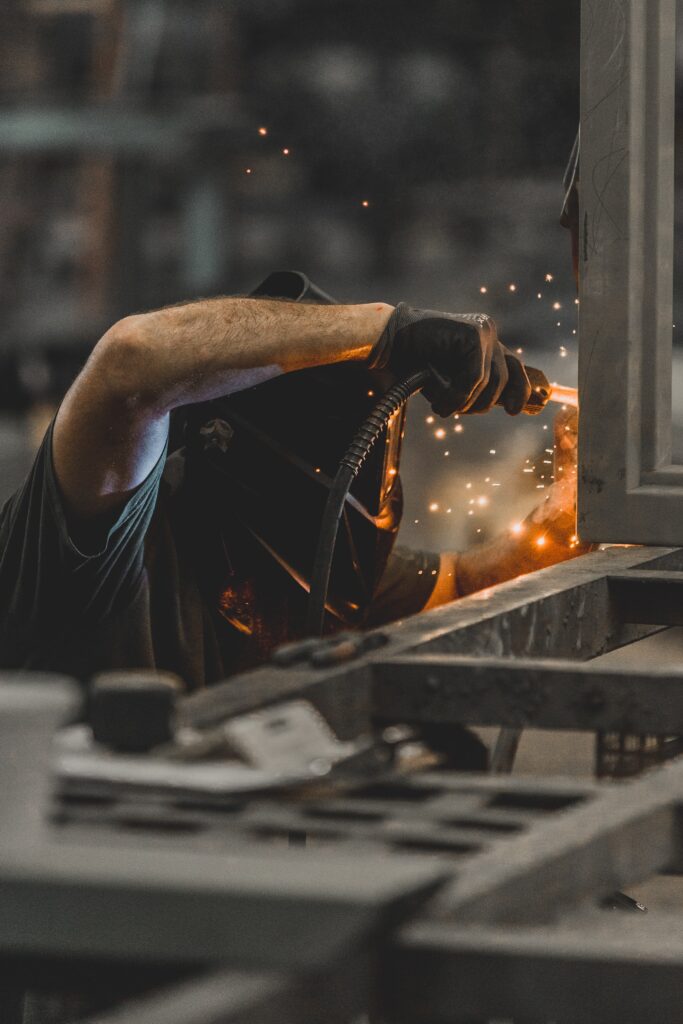Are you intrigued by the prospect of a welding career potentially yielding over 200k a year? The answer may surprise you! By exploring the truth behind this intriguing possibility, you’ll gain a comprehensive understanding of the numerous factors that contribute to a welder’s income, the nuances of the welding profession, and the industry’s geographical income disparities. Immerse yourself in this insightful venture and you could not only quench your curiosity, but also align your career path towards an incredibly rewarding journey!

Understanding the Welding Profession
The welding profession can be challenging yet rewarding: it requires both skill and dedication and offers a variety of dynamic job opportunities. Here’s what you need to understand about this fascinating trade.
The Role of a Welder
As a welder, your role primarily involves joining pieces of metal through different welding techniques. This is a critical function across various industries such as construction, automotive, aerospace, and many others, giving welders an unlimited range of work environments. Moreover, welders are often called upon to inspect and assess the condition of structures or materials, providing solutions where necessary.
Key Skills and Qualifications for a Welder
Strong technical knowledge is a must for this field, particularly in understanding blueprints and metal properties. Excellent hand-eye coordination, attention to detail, stamina, and manual dexterity are also necessary skills to succeed as a welder. In terms of qualifications, a high school diploma coupled with either a technical diploma in welding or an apprenticeship under a certified welder would be an ideal starting point.
Different Types of Welding Jobs
There are various types of welding jobs, ranging from production welding in manufacturing industries to MIG (Metal Inert Gas) welding in automotive repairs. Then there’s the higher-paying underwater or pipeline welding, often demanding additional certifications and experience.
Average Salary of a Welder
Factors Influencing a Welder’s Salary
A welder’s salary can vary significantly depending on several factors. These include the level of skill and experience, the complexity of the job, the industry one is working in, and geographical location. Understandably, jobs that require specialized skills or can be hazardous typically pay more.
Comparisons with Other Skilled Trades
Welding salaries align well with those of other skilled trades. However, welding stands out due to its extensive applicability across several industries, thus offering greater job security.
Entry-Level vs. Experienced Welder Salaries
While entry-level welders earn a modest wage, perseverance pays off in this industry. With a few years of experience under your belt, you can earn a significantly higher salary, especially if you progress into specialized fields.

Possibilities of Making Over 200k as a Welder
Becoming a high-earning welder is achievable, albeit with hard work and dedication.
Demand and Supply in the Welding Industry
Due to a general aging population of welders and the need for replacement, the demand for skilled welders outpaces the supply, leading to relatively higher wages.
Region-Based Salaries
Location plays a significant role in a welder’s earnings. For example, welders working in areas with a booming construction or oil industry may earn more than their counterparts in less industrious regions.
Potential for Overtime
Surprisingly, some of the highest-earning welders make their money through plentiful overtime hours. With significant infrastructure projects or in high-pressure industries, long deployments might be the norm, allowing welders to increase their earnings considerably.
Specialized Welding Jobs with High Earnings
Underwater Welding
Underwater welding is one of the best-paying welding jobs. This is because of the skill level required and the inherent risk involved in working in an underwater environment.
Pipeline Welding
Pipeline welders, particularly those in the oil and gas industry, also see higher earnings than average. This is often due to the project-based nature of the job and the additional risk involved.
Aerospace Welding
Aerospace welders are part of an elite group that requires superior precision and high-quality work, which is reflected in their attractive salaries.

Impact of Certifications and Education on Welder’s Income
Value of Licenses and Certifications in Welding
Regardless of the field, possessing the right licensing and certifications often leads to better compensation. In welding, advanced certifications can open doors to more lucrative job opportunities.
Continuing Education Opportunities
Welding is a continually evolving industry. Therefore, engaging in continual learning is crucial to staying current and increasing your earning potential.
Exploring Self-Employment in Welding
Pros and Cons of Self-Employment
Self-employment presents the possibility of higher earnings, choosing your projects, and setting your rates. However, it also introduces challenges like irregular income, increased responsibility, and dealing with business logistics.
Consideration of Business Expenses
When running your own welding business, don’t forget to account for business expenses. These are part of the equation in turning a profit and should factor in when setting your project rates.
Market Opportunities and Client Acquisition
Breaking into the market takes time. Building relationships with clients and developing a good reputation are integral to a successful self-employed welding career.
How the Economy Influences a Welders Salary
Effects of Economic Downturn
Just like other sectors, the welding industry isn’t immune to economic downturns. In such periods, welding jobs might be harder to come by, and rates may decrease.
Impact of Industry Growth and Decline
Similarly, the health of the industries that heavily depend on welding also impacts welders’ earnings. If the construction or automotive industries are booming, for example, welders stand to earn more.
Advancement Opportunities within the Welding Profession
Moving into Supervisory Roles
As you gain experience, you might consider moving into supervisory roles. These positions often come with higher pay and allow you to oversee projects, providing a break from the physical demands of welding.
Branching out into Welding Engineering or Inspection
Diversifying your skills portfolio can lead to opportunities in welding engineering or inspection. Both areas are financially rewarding and allow you to stay within the welding industry.
Challenges and Skills Required to Earn High Salaries in Welding
Physical Demands and Risks
Welding can be physically demanding and pose health risks. Therefore, maintaining good physical health and adhering to safety procedures is crucial.
Need for Continuous Skill Upgrades
As technology evolves, so too must your skills. Welders willing to continually learn and adapt to new methods and technologies tend to earn more.
Dealing with Tough Work Environments like Offshore or Space
Some of the most lucrative welding jobs can also mean working in extreme environments. Be it underwater, on an oil rig, or in space – these roles demand mental toughness and resilience.
Benefits and Drawbacks of Pursuing a High-Income Career as a Welder
The Reward of High Earnings
Pushing towards a high-earning welding career brings financial rewards. This can mean securing financial stability, providing for your family, or simply enabling a higher quality of life.
Work-Life Balance Considerations
However, chasing the highest salary often comes at the expense of your free time. Long hours and long deployments away from home can significantly impact your work-life balance.
Potential Health and Safety Implications
Lastly, while high-paying welding jobs can be financially rewarding, they often come with heightened risks. Rigorous safety training and proactive health management become even more critical. This is part and parcel of the welding profession, and recognizing it will help you make informed career decisions.
